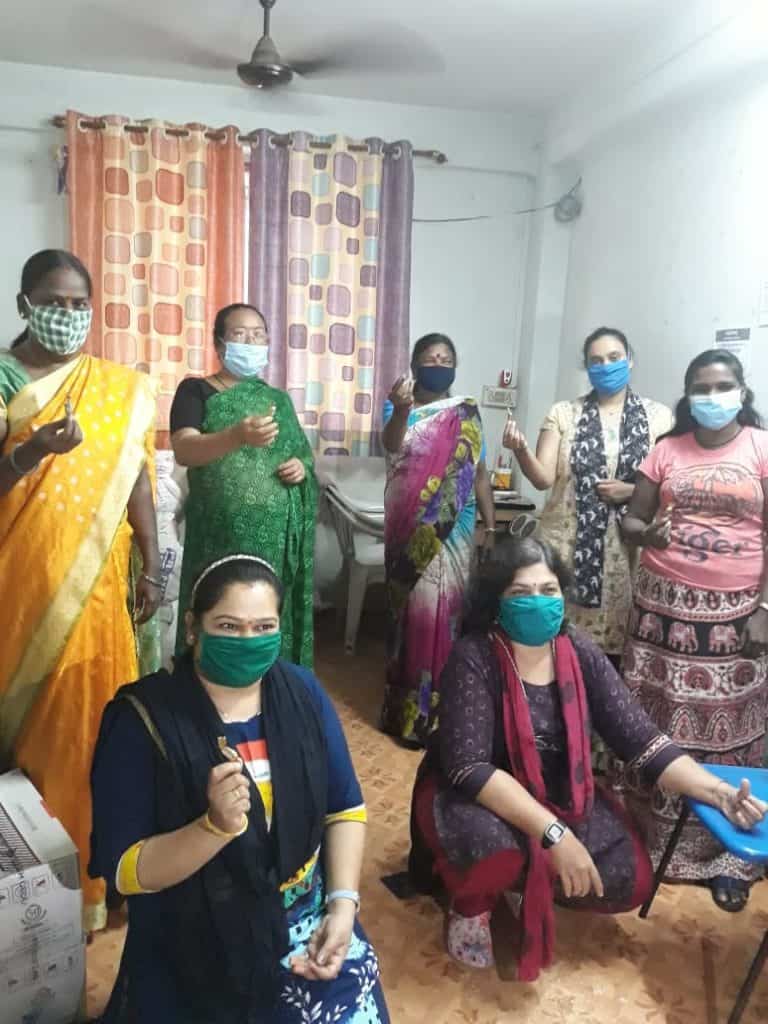‘Abhi koi Randi ya Dhandhewali nahi bolega, Izzat milega ,” says Anita Thapa, a sex worker in Pune’s Budhwar Peth. Anita was reacting to the latest National Human Rights Commission (NHRC) recommendation designating sex workers as ‘dignified workers’ of society.
On October 7th, the NHRC issued a 11-page advisory recognising sex workers as informal workers, making them eligible for the various Central and state benefit schemes. The advisory titled ‘Human Rights Advisory on rights of Women Context of COVID-19’, includes a recommendation that sex workers facing domestic abuse from partners should be identified and reported.
Check the detailed advisory here.
The NHRC advisory came in the wake of a renewed National Network of Sex Workers (NNSW) petition filed in August on the various issues faced by women sex workers during the pandemic lockdown and thereafter.
The NHRC advisory contains several other recommendations made to the commission by the NNSW, an umbrella network comprising 19 organisations across the country representing female, male and trans-sex workers. It has about 150,000 members under it with 72 collectives in about eight states.
“After the news was published in Citizen Matters, we took the matter up more rigorously in the NNSW,” said Tejaswi, Director, Saheli Sangh, a collective of sex workers. “Denied due recognition as citizens and workers, these women were forced to live in unfortunate conditions during the pandemic.”

In its article, Citizen Matters had reported how sex workers were forced to virtually become beggars, dependent on local NGOs for basic necessities like food as the law does not accommodate them in any schemes meant for poor working women.
A long campaign
“Sex Work is dignified work and should not be criminalised; sex workers need to become a part of mainstream society,” has been the thrust of the NNSW’s campaign, arguing that it was an issue of giving them basic human rights. NNSW activists Tejaswi Sevekari and Meena Sheshu have welcomed the classification or listing of sex workers under the ‘Women at Work’ section.
“In July, we were discussing how the coronavirus pandemic has affected this invisible section of society,” said Tejaswi. “It is a major milestone and hopefully the beginning of a new chapter for these women. They are ‘dignified workers ‘ and this new identification by the NHRC hopefully will open several avenues for them in mainstream society”.
Anita Thapa from Nepal, who has been settled in Pune, for over 15 years, brings out the ground reality of the issues that she and others like her in sex work face. “My children are in boarding school and I am capable of sustaining their education financially,” says Anita. “However, my children face ill-treatment from other kids. They openly call them ‘Randi ki aulad’ and ‘haramzada’. The school too wasn’t keen to give admission to my children.” Thapa is now optimistic after the new HRC guidelines. “I won’t be merely identified as ‘sex worker’ now. I am a worker.”
Meena Sheshu, the founder of Sampada Grameen Mahila Sanstha, (SANGRAM) too welcomed the latest NHRC guidelines on Rights of Women in the Context of COVID-19. “It is deeply heartening to see jurisprudence, policy formulations, court opinions and government directives in our country take note of the lives and work of sex workers during this global pandemic,” said Meena. “We hope that government will provide support and guidance for sex worker’s human rights.”
“This guideline can change our lifestyle,” added another sex worker Shanti Pal. “Despite having the means to stay in a good hygienic place, women in sex work are forced to live in slums. The myopic and moralistic society does not accept or allow us to stay with them. The tag of ‘labourer’ can change people’s outlook.”
The NHRC advisory says that sex workers should be recognised as informal workers and temporary documents should be issued to enable them to access welfare measures such as ration under the public distribution system.

Other recommendations in the advisory include setting up a task force on gender-based violence to coordinate and monitor support and prevention services, providing free contraception and giving moratoriums for all loans taken by women workers.
That Citizen Matters was able to contribute in some small measure in this is indeed a happy moment for us.
Also read:
No income, no food, no government relief: Kamathipura’s sex workers pushed to the brink
Why Christina, a dancer with a BBA degree, chose to take up sex work